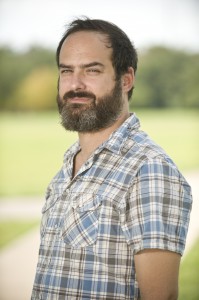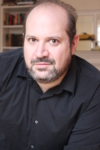 Last winter, we introduced “The Situation in American Writing,” a questionnaire adapted from The Partisan Review that asked questions about literature’s responsibility to address seismic changes in culture, the publishing industry, and the political and geopolitical landscape. That questionnaire, which featured responses from Marilynne Robinson, George Saunders, Victor LaValle, T.C. Boyle, Dana Spiotta, and dozens of other writers was incredibly popular and illustrative of the concerns and preoccupations that writers carry with them when practicing their craft.
Last winter, we introduced “The Situation in American Writing,” a questionnaire adapted from The Partisan Review that asked questions about literature’s responsibility to address seismic changes in culture, the publishing industry, and the political and geopolitical landscape. That questionnaire, which featured responses from Marilynne Robinson, George Saunders, Victor LaValle, T.C. Boyle, Dana Spiotta, and dozens of other writers was incredibly popular and illustrative of the concerns and preoccupations that writers carry with them when practicing their craft.
This year we are interested in the situation of writers, rather than writing, in the subjective experience of writing fiction, rather than fiction’s responsibilities to respond to a rapidly changing world. To this end we are interested in examining the trying intellectual, creative, and emotional labor that is often unacknowledged or effaced in the public presentation of writing. What we’re interested in, to put it another way, is pathos.
This year, we’ve crafted a questionnaire asking writers about the effect writing has had on their physical, emotional, and economic health; on the idea of poverty being a precondition for writing well; on what makes writing truthful to one’s self and to readers. Ultimately, we are interested in the consequences of pursuing writing as a vocation.
Neal Pollack is the author of Jewball, Never Mind The Pollacks, and, most recently, Downward-Facing Death. He is the most entertaining automotive journalist in America and one of the funniest people anywhere.
How has your decision to write affected your health? Has it had negative effects on your personal life?
I think it’s been good for my health, for the most part, because writing makes me happy and happiness is healthy. It’s a totally sedentary profession, so I need to make sure to walk every day, but my blood pressure is normal and I have no important ailments other than a cranky lower back, which yoga helps alleviate a lot. I practice yoga regularly, which is good for whatever ails you. My health was not nearly as good when I was living in Los Angeles trying to make it as a screenwriter. Despite a superficial layer of health, L.A. is actually a really unhealthy place to live because it’s stressful and expensive and there are a lot of drugs. Now the pressure is off and though I miss the L.A. lifestyle sometimes, leaving has made a big difference in terms of my day-to-day wellbeing.
As for my personal life, I’ve been married for almost 13 years, and have been a professional writer for all of them. My wife is my biggest support and biggest champion, so no negative effects at all.
There is long tradition that links the craft of writing with poverty. Do you think that’s appropriate? Does poverty feel like the most appropriate condition for your practice as a writer?
I think being middle class is about right for me as a writer. I have enough money to be able to sit and think for a few hours, but not enough to put on airs or blow off my work. It’s never a struggle, say, to have enough to eat, but I need to sit down at the computer every day and pound out the words because I have financial obligations to myself and my family. Having bills to pay is a great motivator.
In a rare 1983 interview the enigmatic and often dour Romanian writer Emil Cioran speaks about only reading Nietzsche’s letters because he became concerned with how untruthful Nietzsche’s published works seemed when read against the miserable condition of his day to day existence (isolated, weak, sickly, certainly not characterized by any sense of vigor). Is there any sense in which the truth of one’s condition should be related to the truth of one’s writing, even if in an oblique sense?
The “truth of one’s condition” is awfully subjective. We all suffer in one way or another, and to me, the key to good writing is getting to the core of that suffering and turning it into art. It can be comic art, or tragic, or both, but at its best writing gets to something real about what it means to be human. That’s true whether you’re writing from a studio apartment or a villa overlooking the Mediterranean.
Are you envious of other people’s success? If so, are you more envious of people’s success in your field or outside of it? Why?
I’m not necessarily envious of other writers, because I know that they have to sit down and hack it out every day just like I do, unless they are empire-builders like Tom Clancy and James Patterson, who are so far out of my league that it’s not worth thinking about them. And if a midlister occasionally breaks from the pack, I can only think, well, good for them, I know what that must have taken. My envy, strangely enough, settles itself on comedy people, sitcom writers and creators and successful standups and the like. Their work is close enough to fiction writing that I see in them a path that I might have taken to bring myself fame and riches. It’s an unhealthy, unhelpful emotion, but it’s there, and I’m constantly having to check my negative thoughts and actions.
Aside from writing, do you have any other marketable skills? If so, are you ever tempted to cease writing fiction entirely so you can live a more stable life?
I went to journalism school, so I’ve always been able to do magazine hackwork if I have to pay the bills. Half my money last year, just about, came from writing car reviews. And I was damn glad to see those checks. I’m still doing it, and I really enjoy the work. But even if that were to turn into a full-time gig, which it always could, I will not stop writing fiction for anything. Whatever hope I still have of leaving a legacy lies in my novels, and I’ll keep slamming them out until the day I die.
Give one example in which you had high hopes for success (artistic, commercial, or otherwise) but had those hopes dashed.
My memoir Alternadad got optioned by Warner Brothers for a decent amount of money, and they paid me to write a draft of a screenplay. No one read that draft except for my manager, but the check came in and suddenly I had a bunch of money in the bank. Instead of just enjoying the ride, my wife and I decided to sell our house, pitch our stability, and move to Hollywood. I had a couple of sitcom pilot deals, but after the writer’s strike of 2008, everything dried up and I became totally discouraged. Everything collapsed, I went broke, and I just gave up. I was forced to abandon my dream of making it in Hollywood and to begin a retrenchment period, which is ongoing.
This is hardly a tragedy, I realize, and hardly original, but until Hollywood kicked me hard in the nuts I’d always thought that I would succeed massively at whatever I tried. Instead, I was just another guy, and it’s challenging to accept that fact when you think otherwise of yourself. I took a risk and I failed, massively. I’m still coming to terms.
Do you feel like the world owes you a chance to make a living as a writer?
No, but it would be nice if there were more government grants for writers and artists or at least single-payer healthcare.
What is the strongest emotional reaction you have ever elicited from a reader, either in your written work or during a reading? What is the strongest emotional reaction you have ever elicited from yourself during the writing process?
I got an email just today from a guy who said that I interviewed him once for a stupid magazine blurb about his Chicago bar in 1995, and that my slovenly, semi-disgusting appearance and apparently genuine attitude toward the craft made him rethink his life, quit everything, and pursue the writing life. I feel sorry for the dude! But I spend my entire life chasing rainbows, so who am I to dissuade him. I also hear from time to time from people who tell me that my work has encouraged them to try yoga or continue their yoga practice, so that’s nice.
As for the strongest reaction from myself, I try to make myself laugh or at least smile every day. If I can write a funny sentence or paragraph, then I’ve had a victorious session.
When are you at your most truthful as a writer?
I’ve written some very “truthful” nonfiction, and I like some of it, but I feel like I can be more honest in my fiction. There, I can say what I really think about things and people. When you’re writing nonfiction, you have to be more circumspect because there’s so much more opportunity for real-world drama. Which is fine if you’re an investigative journalist trying to right social wrongs, but not so fine if you’re just trying to sell your memoir-story to the world. That just creates drama among friends and family members, and my life is dramatic enough. I want to write my fiction and then take my dog for a walk. Like I’m going to do right now.
This post may contain affiliate links.







